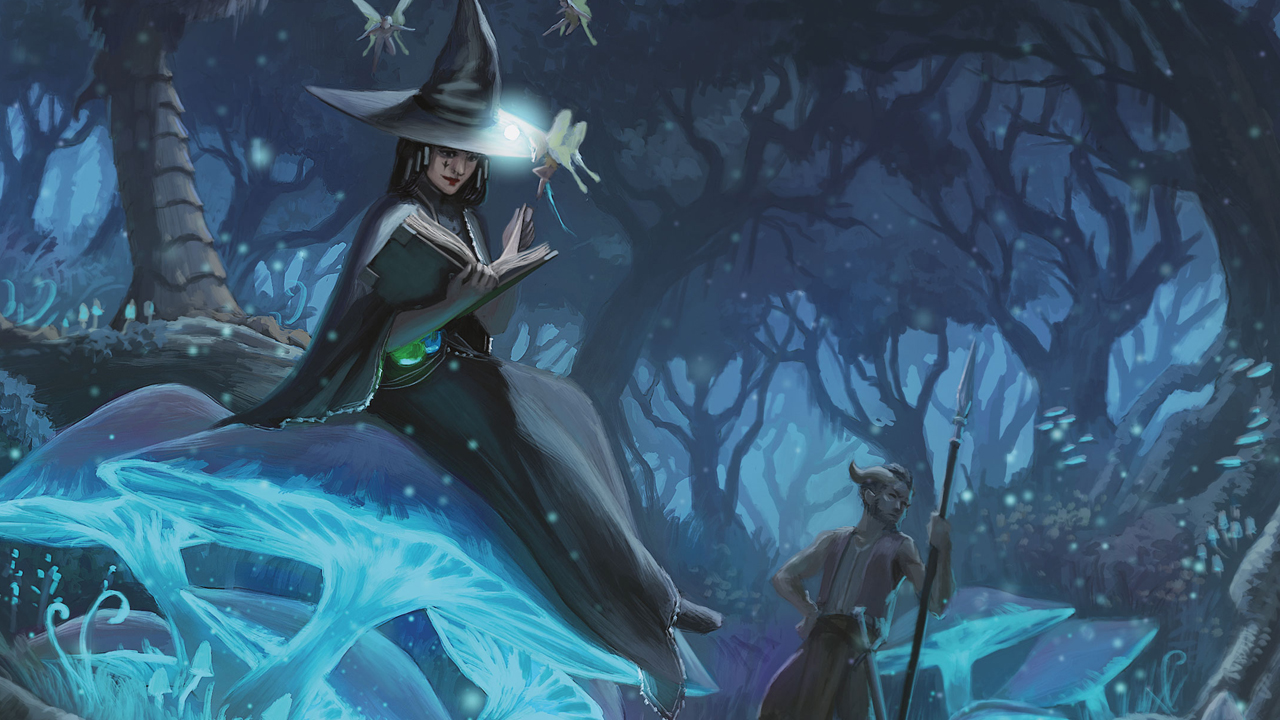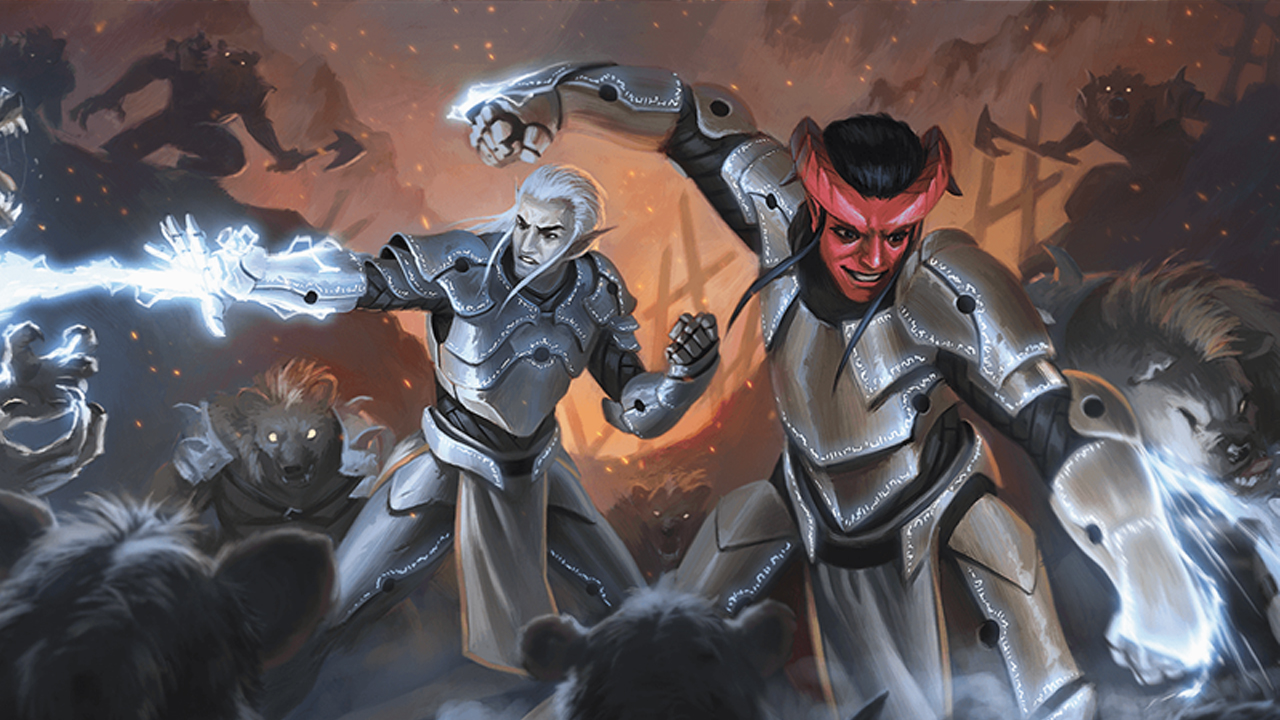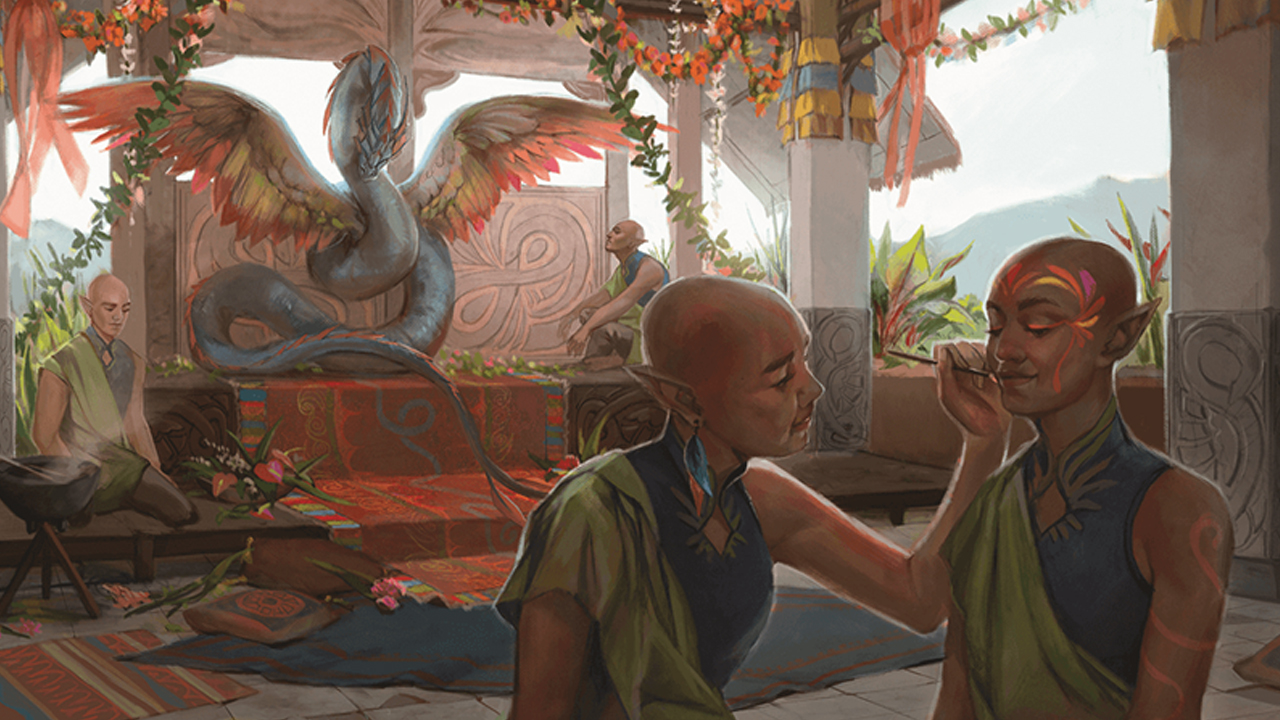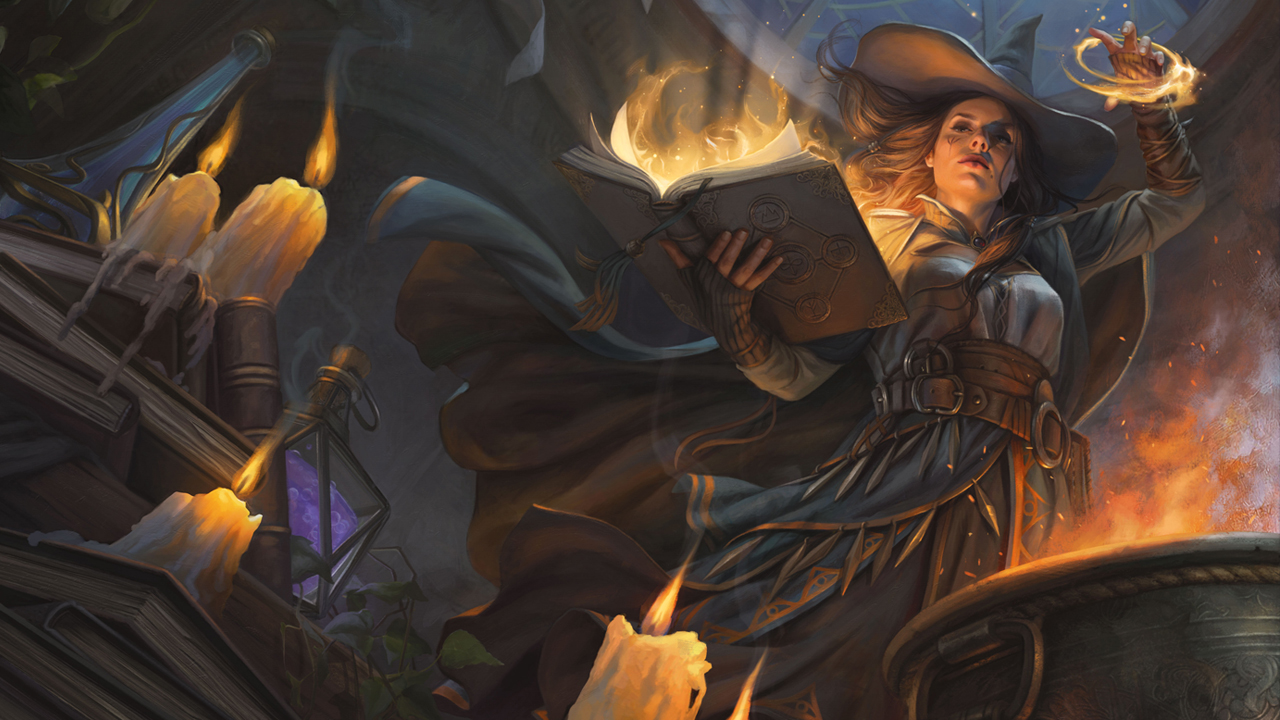GamesRadar+ Verdict
A playful nature and inspiring new rules make Tasha's Cauldron of Everything one of the best D&D sourcebooks in years (even if its player origins leave something to be desired).
Pros
- +
Subclasses are a breath of fresh air
- +
Inventive new rules
- +
Playful, whimsical tone
- +
Very accommodating
Cons
- -
Player origins section is too short
Why you can trust GamesRadar+

Game system: Dungeons and Dragons 5E
Type: Sourcebook
Average price: $50 / £40
Features: New subclasses, player customization, ready-made puzzles, environmental hazards, sidekick and patron tools
Tasha's Cauldron of Everything promises to change it all for Dungeons and Dragons. Yes, it's packed with the usual spells, magic items, and inspirational titbits you'd expect. But the real draw? New subclasses and race options that set out to reinvigorate the game. This is the biggest update D&D has seen in years, and it promises to add fresh depth to one of the best tabletop RPGs out there.
Is it successful? Absolutely. Well, for the most part. It fails to deliver on some of its promises, but the majority of Tasha's Cauldron of Everything is an essential tool that reinvigorates Dungeons and Dragons.
Making it official
Following the same template as Xanathar's Guide to Everything, Tasha's Cauldron of Everything offers new rules with in-universe notes scribbled across the margins by the witch herself. These are fun insights into a character that's been part of D&D for decades, but they're mostly set-dressing. Instead, the meat of this book lies in updates to the game's original classes. All of them have received extra subclasses that breathe life into well-worn favorites. And because they're inspired by articles from developer Wizards of the Coast, they've already been given a seal of approval from the community. Tasha's Cauldron simply refines those ideas and makes them official.
You can tell that these new subclasses are more experimental as a result, yet that's a good thing. They're some of the most attention-grabbing concepts that D&D has had in years, and the majority are a delight. Some turn your druid into a walking star chart that can take on the power of constellations, while others blend psychic power with force of arms (why choose brains or brawn when you can use both?). Yet more allow you to call upon the power of fungi with which to raise the dead or swarm your foes. Although a few subclasses are less exciting, it's obvious that the designers had a blast messing about with these as a whole. Tasha's Cauldron of Everything is so much better for it; in fact, its playfulness is a real strength.

Being able to personalize spells is even better. This may not change your magic's function, but it's a whole lot more memorable. Be it fireballs that look like chickens or tattoos which bind magic to your body, they spotlight the wild creativity that defines Dungeons and Dragons.
The Patron system is equally good. As well as giving an excuse to bring your party together (which is useful for new groups), they offer fun jumping-off points when it comes to questing. For instance, an Ancient Being could ask you to perform a mind-heist on their rival to steal their memories. Or an Academy might send you into uncharted territory beyond the edge of the map. No matter what, it's a great resource for Dungeon Masters.
Wiping the slate clean
I wish the heavily advertised changes to player origins were as substantial. Following criticism that character builds in the Player's Handbook were reductive (each race forced you toward a specific archetype), Tasha's Cauldron of Everything aims to address these flaws by providing greater freedom. Even if it does the job, scant rules and a proficiency table are the only hard changes that go beyond a hand-waving sense of "if you don't want it, don't use it". Which is fine, but it feels anticlimactic. Especially because those options and custom lineages are confined to just two pages. In the case of lineages, I was hoping for something closer to the Heroic Chronicle we got in Explorer's Guide to Wildemount. In other words, providing interesting story hooks for players to adapt.
However, it'd be unfair to ignore the advances this system brings to the table despite its threadbare nature. Rather than being limited to your species' Ability Score Increases or proficiencies, you can reapply those points to other areas of your choosing. For example, half-orcs usually gain bonuses to Strength or Constitution that not-so-subtly nudge them in the direction of combat builds. Here, you can take those bonuses and apply them to something else like Intelligence. Want a smaller, more academic orc instead of a burly warrior? Now's your chance.

It's a most welcome change, as is advice for inclusive ground rules that make sure everyone is comfortable around the table. Expanded sidekick mechanics in games with only one other person fit a similar bill, demonstrating D&D's effort to be more accommodating from here on in.
Environmental hazards are another welcome addition, but for a very different reason. These allow Dungeon Masters to inject fresh chaos into their encounters. Perhaps it's via creatures that have absorbed so much magic they've become physic. Or it's due to unexplainable phenomena such as haunted taxidermy that spills your secrets. Basically, these quirky ideas will help anyone struggling to make exploration and combat exciting.
Ready-made puzzles are handy for much the same reason. They come in three tiers (easy, medium, and hard), scale to the difficulty level you need, and can be added to any campaign. They even lay down suggestions for customization, should you want to experiment. Dungeons and Dragons can result in a lot of prep, so having plug 'n' play add-ons like these is a lifesaver for time-strapped DMs. Particularly because Tasha's conundrums are more inventive than players may be used to. Sure, I would have preferred to see more that aren't tied to numbers and letters. But what we've ended up with is still excellent.
That sort of ingenuity makes Tasha's Cauldron of Everything a must-have purchase. A lean player origins section is but a small blemish on an otherwise fantastic sourcebook, and this one excels everywhere else.

I've been writing about games in one form or another since 2012, and now manage GamesRadar+'s tabletop gaming and toy coverage. You'll find my grubby paws on everything from board game reviews to the latest Lego news.



